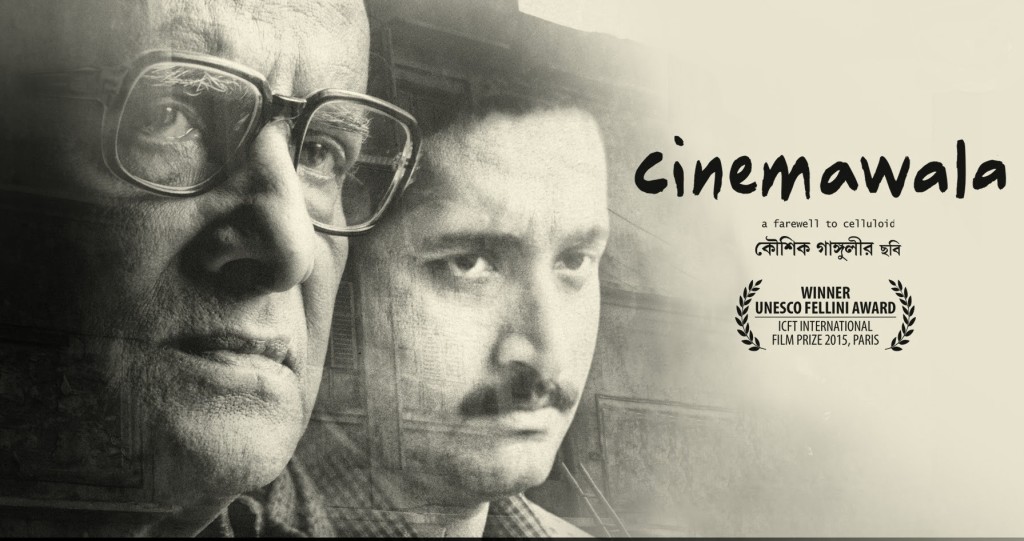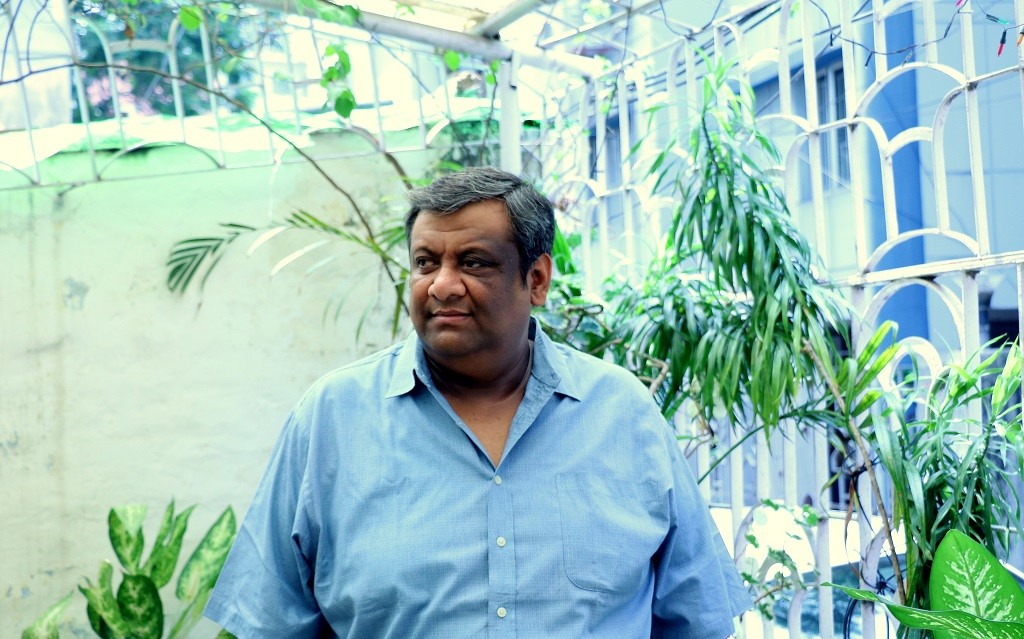Kaushik Ganguly’s Cinemawala hits theatres nationwide
As Cinemawala, a Bengali film by national award winner Kaushik Ganguly releases nationally, the director acknowledges his deep-seated nostalgia for celluloid and the vanishing single screen theatres in Bengal.
While the Indian audience takes habitual respite in “boy-meets-girl” stories, there is some occasional brilliance in the regional Indian cinema that surprises, elucidates and sometimes counter reflects our changing society. Cinemawala is Kaushik Ganguly’s tribute to the celluloid and a deep insight into the changing practices of film exhibition with the advent of digital cinema.
The Bengali director known for his unusual subjects and remarkable story-telling explores the fateful world of a single screen theatre owner fighting to assimilate the craze of multiplexes, while reminiscing the bygone days amid obsolete projection machines and the monochromatic posters hanging on the walls of his shutdown theatre.
How often do we see an Indian director exploring so many novel subjects in his career? Kaushik Ganguly says it’s an organic process that he goes through while choosing subjects such as foley artists (Shabdo, 2012), the life of a child artist (Apur Panchali, 2013) or a dwarf seeking identity (Chotoder Chobi, 2014) and it comes from a responsibility. “I feel it is my duty towards the society that I explore small things which never became a subject; it’s very important to make subjects out of non-subjects. The language of cinema has no barriers and I personally have an urge to tell stories rooted to my geography yet universally relevant,” explains Kaushik Ganguly.
UNESCO Fellini medal at IFFI
At the International Film Festival of India (IFFI) 2015, Cinemawala bagged the coveted UNESCO Fellini Medal that recognised the film for its “social, human contribution, and creating a universal subject out of a local but universal problem.” The film takes the pride of being showcased in multiple film festivals such as the New York Indian Film Festival, 2016, Chennai International Film Festival, (CIFF), Pune International Film Festival, IFF Delhi, IFF Kerala, Bangalore International Film Festival and recently at the 13th Indian Film Festival Stuttgart. However, there is a deep-seated agony that haunts him when he talks about the idiosyncrasies of the regional or the national audience.
“What is the use of getting selected in festivals if the people for whom you are making the film remain ignorant or rather impious? Audience have stopped going to theatres and the huge racket of digital piracy is killing the art for no good. I feel appalled when I see my audience reluctant to watch a good film,” adds Ganguly.
Over 700 single screen theatres are closed in West Bengal over the last two decades. More than 1400 projection machines lie obsolete like scrap iron pieces and numerous film exhibitors have gone out of business. Cinemawala is a story based on this very conflict of ideologies and challenges of accepting the new era of digital cinema.
“I feel nostalgic as well as lucky to get an opportunity to work on celluloid when I started my career. It’s history now. We have embraced the technologies and the viabilities in the business, but where is the response from our audience? It’s not enough to discuss a film on a coffee table after downloading it from the torrent. Artists and audiences should share a reaction platform and theatres give you that podium,” Kaushik Ganguly says while sharing his hopes for a changing space in Indian cinema.
Filmmakers fighting for freedom of expression
He adds, “It’s unfortunate that Indian filmmakers are still fighting for their freedom of expression,” while talking about the Udta Punjab film censorship, “ we directors do tell stories out of sheer passion and due responsibility to the society. I think cutting scenes is curbing our freedom to express and it’s very derogatory for us to accept. CBFC, the censor board, should be an independent body with people who have a respect for the art form “
Cinemawala was released in Kolkata on May 13. After a thriving run in the city the film is releasing today in Mumbai, Pune, Noida and Gurugram (previously known as Gurgaon). The producers, Venkatesh Films hope to release the film in some more cities, after the initial responses from the country wide audience.











